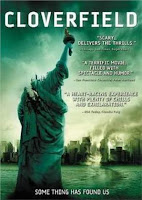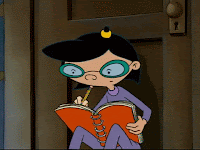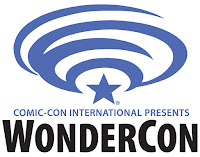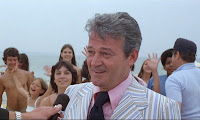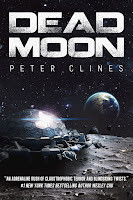If you’ve been following this blog (or me on Twitter) for any amount of time, you know one of my favorite Saturday thing to do is watch B-movies. I’ve always had a certain love for them, and I think it’s a place to find some unsung gems if you’re willing to dig. Plus, lots of chances to flex your storytelling muscles and figure out some stuff. Where did this go wrong? Am I doing this in my own writing? How could it be fixed?
One type that always puts me on edge is found footage movies. After movies like The Blair Witch Project and Cloverfield became huge hits, shooting movies in this style exploded. Especially lower budget movies. There are dozens and dozens of them out there, covering topics from US forces in Afghanistan to dinosaur lost worlds to Judgment Day itself. Although you do have to ask… who found that particular footage…?
The catch, though, is found footage is one of those storytelling methods that looks very simple and forgiving. In fact, it’s an incredibly difficult way to tell a story, especially if I want to do it well. Possibly one of the hardest ways. And I’ve thought a few times about scribbling up a bunch of points and warning signs to watch for in such things, but the simple truth is I don’t offer a lot of straight screenwriting (or filmmaking) advice here anymore. Nothing major, anyway.
But it recently hit me there’s a way this ties to prose writing, and that’s through the epistolary form. If you’re not familiar with it, it’s when the story’s told through letters, journals, news articles, and other bits of found media (aaahhhhh, sound familiar?). Dracula and Frankensteinare both classic epistolary novels. There’s a magnificent one that just came out from Dan Frey called The Future is Yours, which uses emails and blogs and text messages. I used it for a section of one of my own books, Ex-Communication, where we get a look at a young girl’s journal, and in the very first story I ever sold for cash money, “The Hatbox.”
But just like found footage, an epistolary novel or short story can look deceptively easy. And it turns out they hit a lot of the same basic problems as found footage movies. So I thought I could take a few minutes and talk about four major flaws I see in both of these related formats—the movies and the books..
As always, none of these are die-hard absolutes, and it’s always possible someone could do this in a movie/ novel and make it work beautifully. But I also think they’re common enough as flaws that I need to be 100% sure what I’m doing is flawless if I decide to use one of these devices, because the automatic assumption is going to be… it’s a mistake. And when people hit the third or fourth obvious mistake in my story, they’re probably going to move on to something else. And that’s all on me, not them.
So… first thing.
Mistakes must be deliberate and clearly be deliberate
A lot of storytellers see the found footage/epistolary style as, well, an excuse to be lazy. Yeah, they do. Sorry.
Sure, there are lots of spelling mistakes, but that’s only because my narrator doesn’t know how to spell. Yeah, there are gaping holes in the plot, but the narrator wasn’t there for everything—they can only tell what they know. Yeah, this isn’t what we want to see or hear, but it’s more believable they’d be writing about this or pointing the camera at that. And, whoa, did we not once get the actress’s face in that scene? Well, it’ll be fine, that’ll just look even more authentic.
What’s going on here is something I’ve talked about before. People are confusing reality—that thing we walk around in most of the time—with fictional reality. Often they fall back on this to excuse bad dialogue or behavior in prose. Here I’m using it to excuse my writing in general. Or, in the film case, horribly framed and/or lit shots.
The bigger aspect of this, though, is my audience (readers or viewers). I mean, we can all spot mistakes when we see them. Clearly I wasn’t supposed to see that crew member in the mirror, or the battery pack and wires for her mic pack, and we all know the difference between there and their and they’re (don’t we…?). So when we see these things, our automatic gut reaction isn’t “gosh, this seems so real,” it’s just “Mistake!!” and maybe a pointing finger.
That’s why I need to be super cautious about “mistakes” in this sort of storytelling, because they’re going to be interpreted as, well, actual mistakes. Not something wrong with my character’s spelling ability, but a failure on my editor’s part. Its just an actual mistake in the film or book. And that’s the kind of thing that ruins the flow.
Cause here’s the thing… Absolutely no one went into Cloverfieldthinking they were looking at actual footage of a giant monster attacking
So if I’m going to make mistakes, they have to be super-blatant mistakes. Things nobody could’ve missed. Things a spellchecker would catch. I don’t want to put their instead of they’re, I want to see there’re or theyer. Really clear, very deliberate mistakes.
Cameras are not characters
There’s a scene (or series of scenes) in every found footage movie where the camera moves too much. It’s imitating the gaze of the character holding it rather than, y’know, being a camera they’re holding. These moments can be subtle and ring a bit false—looking back and forth between two things, for example—or they can be big and make the audience shout “Why are you stillholding the camera?!!?” Y’know, like when you stop to point the camera at the giant monster opening its mouth to eat you.
We all recognize in these moments that no human being would still be carrying a camera on their shoulder or holding a cell phone out in front of them. They definitely wouldn’t be turning, aiming, resizing, refocusing, and so on. It’s a cheat, and we all recognize it as one.
Likewise, there are things it’s tough to buy in epistolary form. A journal is close to first person POV, but it’s still something different and distinct. If I just spent six hours fighting the zombie horde with an axe, am I really going to sit down and write out those six hours in meticulous detail? Would I write out what all the zombies looked like, what I was thinking of when I decapitated them, some random observations about the human condition? Or would my entry just be—
Feb. 18th (??? Thursday???) – brutal day killing zombies. friggin exhausted. most everyone made it. maybe write more tomorrow if there’s time.
Heck, would I even write that much? I mean, with everything going on, am I really going to spend any of my precious downtime writing? And by… flashlight? Campfire?
And it’s not just fighting zombies. How much would you want to write after eight hours of hiking or a twelve hour work day? Seriously, think of the writing you’ve done in your own life. Letters, journals, diaries—how much detail did you really go into? How often? How many things did you just skim over? I know my attempts at journaling were never that great, and I know they would’ve been worse if I was in the middle of a custody battle or an alien invasion. Or both. Heck, I still write physical letter to a few folks, but there are long gaps between them and lots of stuff I never include. Yes, Kevin, I know I’m very behind—sorry.
I need to have amazingly rock-solid reasons for why people would continue to point that camera or keep up those journal entries. And doing this can’t conflict with that first flaw up above. There’s only so many times we’ll buy “oh, I thought I turned the camera off.”
Cameras are not eyes
When watching my Saturday geekery movies, it’s pretty common for me to give a movie crap for jump scares. Especially ones where the monster/ ninja/ cyborg is leaping into view of the camera but it clearlywould’ve already been in view of the characters. This is a really common problem in found footage movies—confusing what the camera sees for what the character sees.
This is more a mechanics of storytelling issue. Understanding there’s more going on than we’re seeing, and that my characters have thoughts and experiences beyond what they share with the audience. We know they’re hearing and seeing things the camera isn’t, so it’d be bizarre for them to act as if the only things they experienced were the things that appeared on camera.
A weird flipside of this that happens enough to make it worth mentioning—I can’t show something on a found footage camera and then say my characters didn’tsee it. Either they were looking through the viewfinder or they watched it reviewing the footage (because why else did they have cameras running?). So characters acting like they didn’t see what we, the audience, saw just makes them look stupid.
Likewise, journals aren’t really narrative. They’re one person’s very limited view of a narrative Even more limited than regular first person. We’re removed from the actual events by the narrator and by the narrator’s personal biases and limitations—again, how much they actually write and what they write about vs. what’s actually happening in the narrative.
If that sounds a little confusing, think of it in terms of an unreliable narrator. We know they’re telling us a story, but we also know it’s not the real story. Maybe they’re leaving things out or putting a spin on the facts or just don’t understand what’s going on around them. We understand we have to translate what they’re telling us and fill in some facts ourselves.
And this is what every journal is like. They’re all kinda unreliable. They’re filtered by our individual experiences, our knowledge, our maturity, and our own views. There’s always going to be more going on than what’s on the page.
Super short version of this–I can’t have piles of story beats that are only about how the audience will react to things—I need to consider the characters too. How are they interpreting and reacting to the events going on all around them?
It’s all just random incidents and coincidences
This is what usually happens when more than one of the above flaws happen. The narrative starts to break down because it can’t actually be supported in this form. A lot of time when this happens, filmmakers will give up on the found footage conceit altogether and just have random camera views from, well, anything. It was 90% cell phone footage until we had a car chase, so now it’s all random traffic cams or ATM cameras. How did we get that footage? Not important!
Likewise, as tension mounts in a story, it becomes less and less believable that someone’s taking the time to write out more and more details in their diary. It makes us aware that the zombies could burst in at any minute, but I took half an hour to scribble down all the gory details of how Wakko died. It’s either the story grinding to a halt or the story getting skimmed over because who has time to be writing right now?!?!
A common sign of this in both films and journals? The story just stops. It doesn’t end, mind you. It just… stops. The movie that goes black or the journal that ends in mid-sentence. Which, I mean, is still slightly better than…
I hope this letter gets to you somehow, Yakko, because I hear footsteps on the stairs. There’s no way out for me but remember what I told you! Oh no!! They’re right outside my door!!
Anyway…
There are the four common flaws I’ve seen in this type of storytelling. Each one is pretty bad. I think any two of them together will pretty much sink my story. So if I’m going with the found footage/ epistolary style, I need to make sure I avoid them.
But hang on! All of this means it’s going to be a lot harder to tell the story, right? I’m going to have to figure out new scenes and sequences. Probably change dialogue. Maybe restructure some things. And then still make it a good story?
Well… yeah. I mean, I chose to tell something in this format. This is what the format needs. What am I complaining about? Can you imagine if I started writing a romance novel an then said “awwww, geeez… there’s all this relationship stuff and kissing I have to deal with. I don’t want to write any of that.”
Like so many artistic things, I need to do a lot of work to make it look easy.
Hey, speaking of work and advice… WonderCon is coming up, and I’m going to be doing another Writers Coffeehouse with a bunch of professional writer-friends. We’re recording next week, so if there’s any writing-related question you’d like to get a consensus answer on, this is your big chance. Just toss it in the comments below or hit me up with it on Twitter. Outlining, characters, dialogue, daily schedules, editing, tell us what you need.
And next time here, I’d like to talk to you about the one time when all these rules don’t matter.
Until then, go write.
Or shoot something with your phone.



